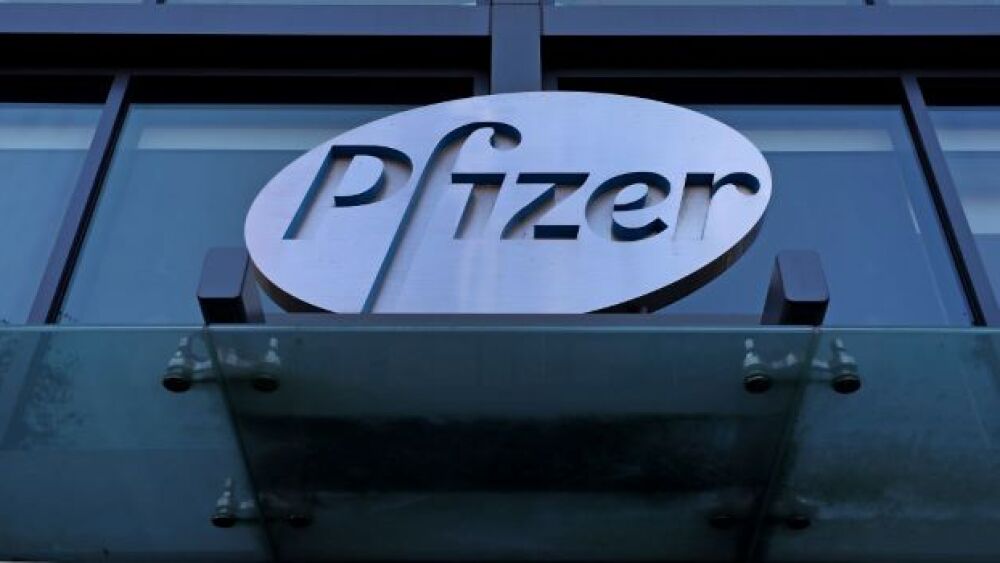The approval of Cibinqo was based on data from five clinical trials of more than 1,600 people. Safety and efficacy were studied in three Phase III trials.
Cibinqo is another drug for atopic dermatitis. (David L. Ryan/The Boston Globe via Getty)
The U.S. Food and Drug Administration (FDA) approved Pfizer’s Cibinqo (abrocitinib) for adults with refractory, moderate-to-severe atopic dermatitis (A.D.) whose illness is not adequately controlled with other system therapies or when those drugs are not advised. Cibinqo is an oral, once-daily, Janus kinase 1 (JAK1) inhibitor.
The approval was based on data from five clinical trials of more than 1,600 people. Safety and efficacy were studied in three Phase III trials, as well as in a dose-ranging trial and an ongoing long-term open-label extension study.
The drug demonstrated consistent safety and “profound” improvements in skin clearance, the extent of disease, and severity. It also showed rapid improvement in itch after two weeks.
“The reality for patients living with chronic inflammatory skin disease such as moderate-to-severe atopic dermatitis is that many experience debilitating symptoms that are not managed by current treatment options,” said Dr. Jonathan Silverberg, Department of Dermatology, The George Washington University School of Medicine and Health Sciences. “Today’s approval of Cibinqo will provide an important new oral option that could help those who have yet to find relief. In multiple large-scale clinical trials, Cibinqo demonstrated strong efficacy at clearing skin, improving itch, and managing the extent and severity of eczema, offering a benefit-risk profile that supports the use of this treatment in the FDA-approved patient population.”
Development Timeline of Cibinqo
In September 2021, Cibinqo received its first approval in the U.K. Prior to its approval in the country, it had received a Promising Innovative Medicine (PIM) designation from the U.K. Medicines and Healthcare products Regulatory Agency (MHRA) as well as an Early Access to Medicines Scheme (EAMS). This allowed healthcare providers to prescribe the drug before marketing authorization based on specific circumstances.
Then in December, the drug was approved by the European Commission (E.C.).
The FDA approval is for a 100-mg and 200-mg dose. The higher amount is for patients who don’t respond effectively to the lower dose. The FDA also approved a 50-mg dose for certain patients with moderate kidney failure.
Competition in the marketplace includes Sanofi and Regeneron’s Dupixent, which brought in about 6 billion euros in the third quarter of 2021. Last year, Pfizer’s Chief Executive Officer Albert Bourla projected Cibinqo would create $3 billion (U.S.) in peak sales, and this year, analysts with SVB Leerink projected it would generate $2 billion by 2027.
Atopic dermatitis affects about 5% to 10% of adults in the U.S., making it the most common inflammatory skin condition. About one in three have moderate-to-severe symptoms, many of whom believe it is just a skin rash.
“Atopic dermatitis is so much more than just a rash, and it goes beyond the surface of the skin,” said Julie Block, President and Chief Executive Officer of the National Eczema Association. “It’s a chronic condition that can both significantly disrupt patients’ daily lives and negatively impact their emotional well-being.”
The most common adverse events reported with the drug included nasopharyngitis, nausea and headache.
“The FDA’s approval offers hope to the millions of patients across the U.S. who are suffering daily with an immuno-inflammatory condition that can cause intense and persistent itching, pain, discomfort, and distress if left uncontrolled,” said Mike Gladstone, Global President of Pfizer Inflammation & Immunology. Cibinqo, an efficacious once-daily pill, is a medical breakthrough made possible by Pfizer researchers and the people living with moderate-to-severe atopic dermatitis who participated in our clinical trials.”
Featured Jobs on BioSpace





